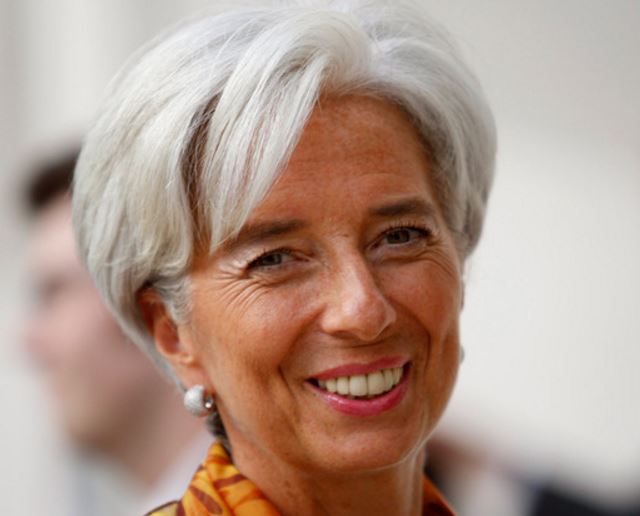Christine Lagarde warns of the risks for the UK economy related to a possible Brexit (Britain Exiting the EU). The Managing Director of the International Monetary Fund (IMF) said she ‘very, very much’ hoped that Britain would remain as a Member State of the European Union. “Certainty is always better than uncertainty,” she added.
The IMF’s latest assessment of the UK economy – United Kingdom—2015 Article IV Consultation Concluding Statement of the Mission – included the following comment:
“The UK’s recent economic performance has been strong, and considerable progress has been achieved in addressing underlying vulnerabilities.”
 IMF Boss Christine Lagarde says she’d like Britain to remain in the European Union.
IMF Boss Christine Lagarde says she’d like Britain to remain in the European Union.
“Growth has exceeded that of the other major advanced economies, the unemployment rate has fallen substantially, employment has reached an historic high, the fiscal deficit has been reduced, and financial sector resilience has increased.”
GDP will continue growing and inflation will pick up
The IMF predicts that the UK’s steady growth will probably continue over the next few years, with inflation gradually returning to the Bank of England’s 2% annual target.
After a healthy period of strong private domestic demand-driven growth, matched by solid increases in employment, the UK economy now looks to be running close to capacity.
The IMF added:
“Investment has contributed to domestic demand growth, and recent increases in productivity give cause for cautious optimism about growth in real incomes.”
As the labour market slack is used up, the IMF expects growth will slow down marginally next year and to average about 2.25% over the medium term.
IMF warns UK economy facing key risks
However, several key risks were also listed, including Britain’s looming referendum on whether to remain in or leave the European Union, which will take place by the end of 2017. Ms. Lagarde expressed concern that investor confidence may be undermined as the vote nears, which could damage the country’s growth prospects.
The IMF wrote:
“Uncertainty associated with the outcome of the planned referendum on EU membership could weigh on the outlook.”
The IMF added that the presumed recovery of productivity growth to nearer its historical average, which is crucial to ensure that output growth and incomes remain solid, might not materialize.
The IMF commented:
“Addressing these vulnerabilities will require continued prudent and intrusive supervision of the financial sector, continued implementation of financial regulatory reforms, further reductions of fiscal imbalances (which in combination with accommodative monetary policy will also contribute to an improved current account), and structural reforms to boost productivity.”
Regarding the additional runway for London
In an interview with Channel 4 News (see YouTube video below), Ms. Lagarde was asked about the economic consequences of delaying the decision on an additional runway at either Heathrow or Gatwick airport.
She answered that it is not IMF policy to comment on themes of a political nature. She remembered a time, before the Paris-to-London Eurostar, when a fast train would take passengers to the northern French coast, and then a slow train would transport them on the English side to London. Although it took time, the project was eventually done.
Ms. Lagarde said:
“I very much hope that good projects like that will actually be implemented.”
Asked whether the IMF is concerned about China’s economic growth slowdown, she said China is unlikely to have a **hard landing. She does not believe there will be an economic collapse in China.
** A hard landing is an abrupt and severe slowdown in economic growth following a period of GDP expansion.
Video – Christine Lagarde on the UK economy
